Over the years, the Chinese have found many promising ways and techniques of leading their lives. One is Feng Shui, the ancient Chinese practice of harmonizing one's environment. This can also be applied to the bedroom to promote better sleep, relaxation, and overall well-being. Here are some key Feng Shui techniques to improve the energy flow (Chi) in your bedroom and support restful sleep.
Bed in 'Command Position'
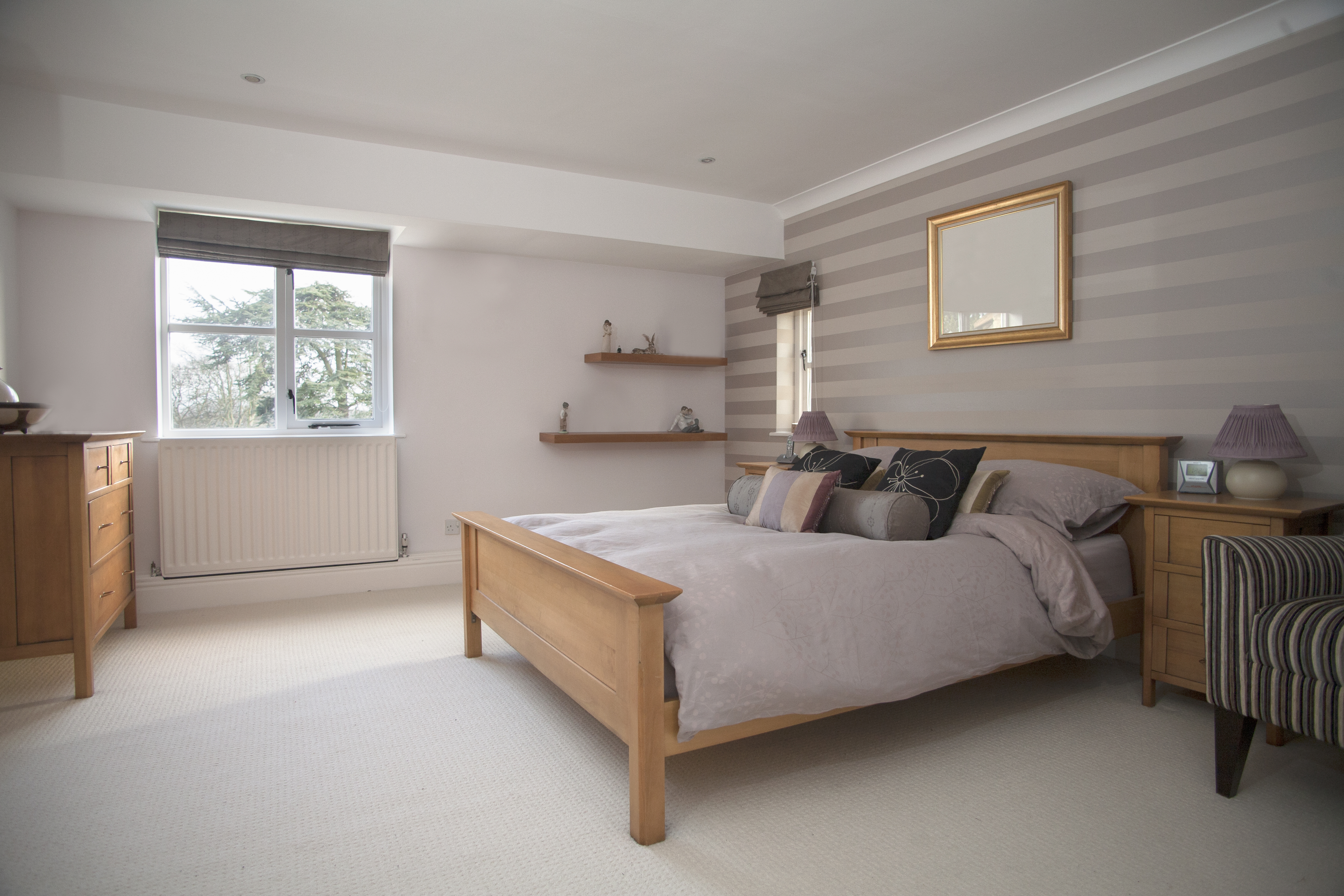
The bed is one of the most important features of Feng Shui as it depicts your level of wellness. ‘Command position’ is the best hormonal placement where you can see the door but are not directly in line with it. This positioning of the bed helps you feel secure and in control. Additionally, your bed should have a solid headboard which provides support and stability. Metal headboards are discouraged in Feng Shui as they may disrupt energy flow. Place the head of the bed against a solid wall, not beneath a window. This will create a sense of safety and grounding.
Declutter your bedroom
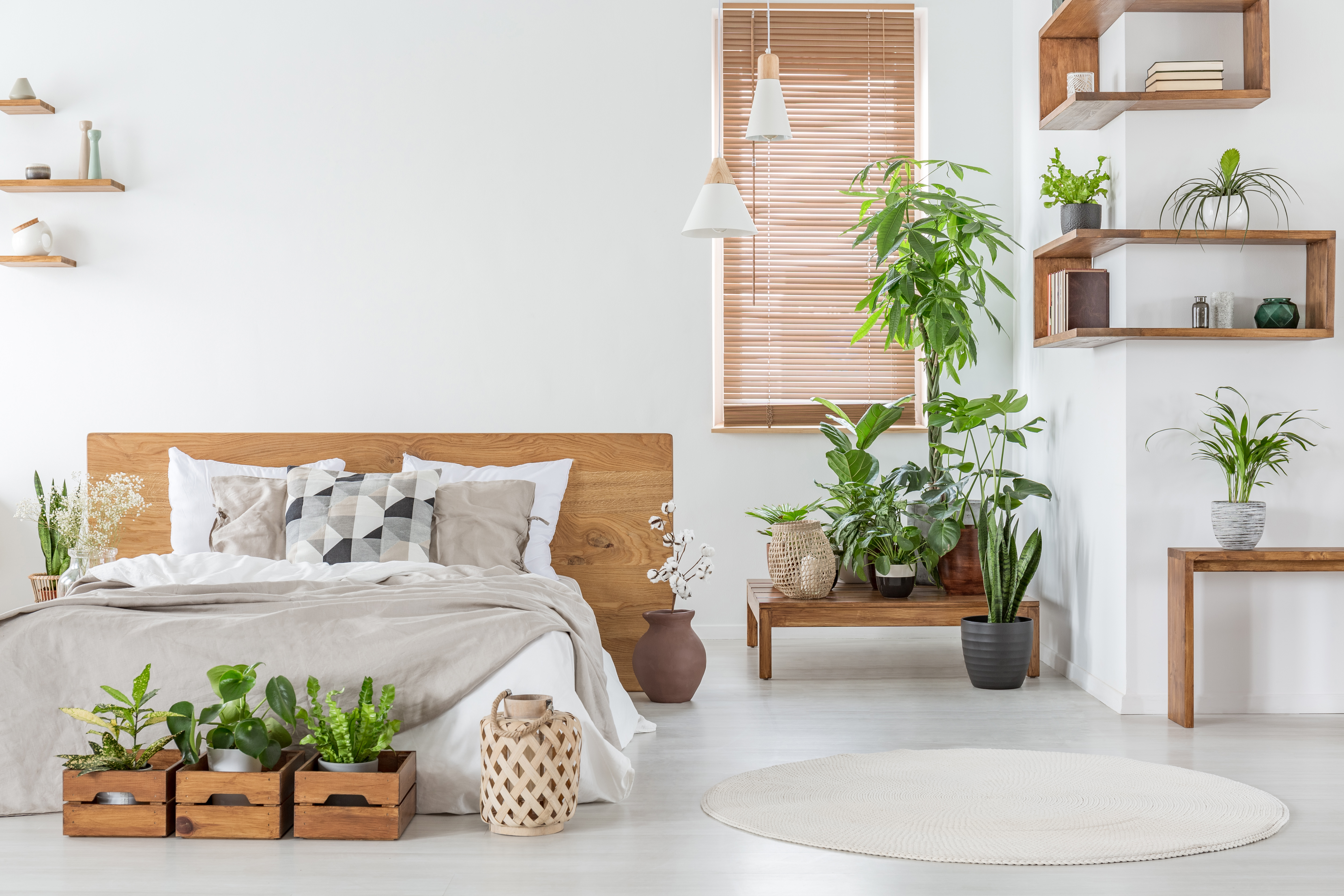
Too many items in a bedroom create noise and chaos that can affect your sleeping pattern. According to Feng Shui, one should keep their space, uncluttered so that energy can circulate freely. Avoid storing items under the bed. This can block energy flow and contribute to restless sleep. Keep your nightstands tidy. Clutter next to the bed can cause mental chaos leading to disturbed sleep. Keep limited items in your bedroom to create a resting environment.
Choose soft colors symmetries
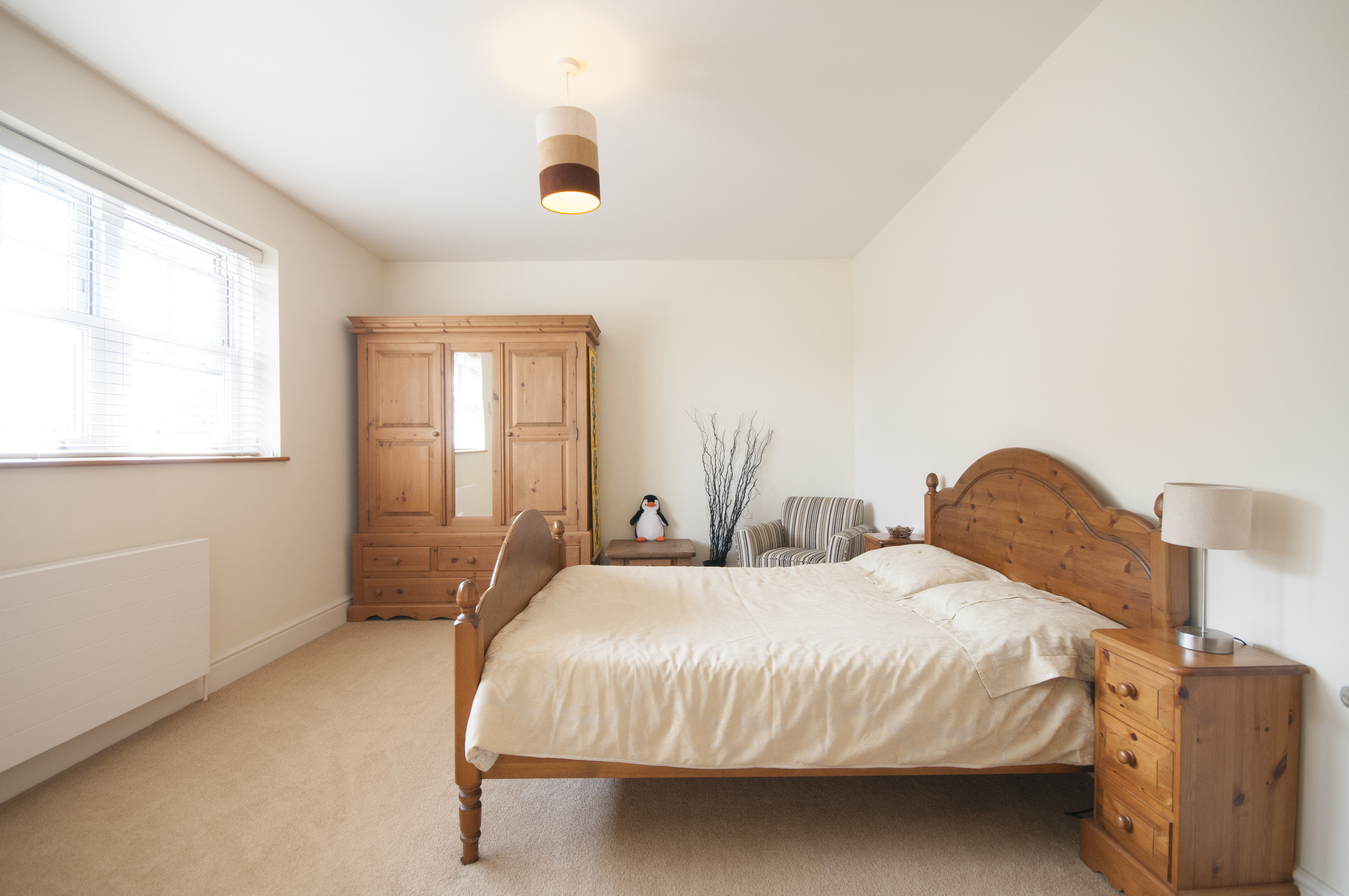
The color of the walls and curtains contributes to the room’s energy. Choose soft shades like pale blue, soft green, and brown or beige to gentle the feeling in the bedroom. Such colors are soft and resemble nature, thus helping to calm and restore the body. Additionally, cotton bedding will complement the light-toned walls to maintain soft energy for a peaceful sleep.
Balance elements
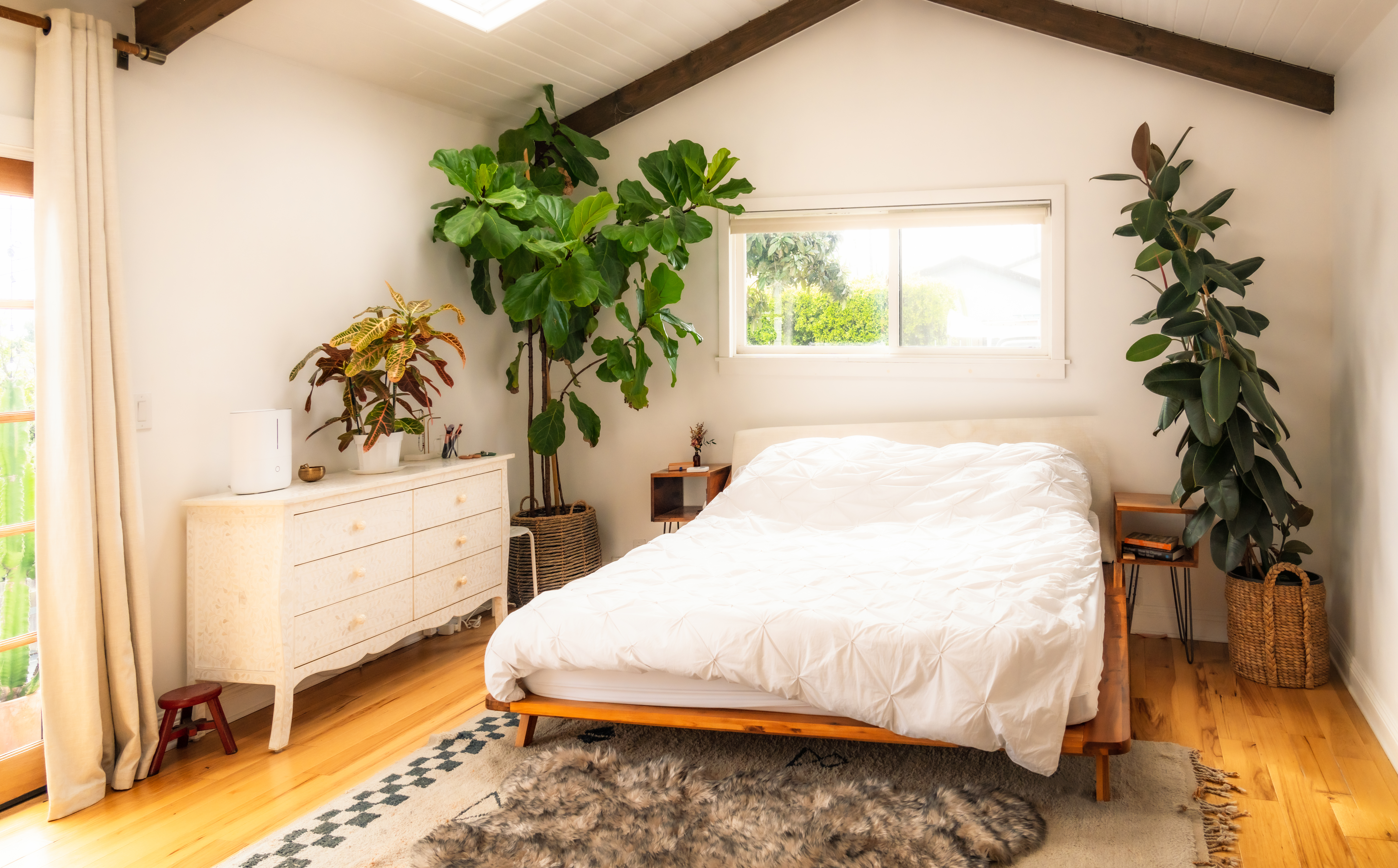
Feng Shui emphasizes balancing active (Yang) and restful (Yin) energy. Bedrooms should lean towards Yin energy, with calming, soft colors and gentle lighting. Introduce natural elements like wood or plants (avoid too many plants as they can create too much Yang energy in the bedroom). Balance the space with a small plant or a piece of wooden furniture.
Avoid electronics
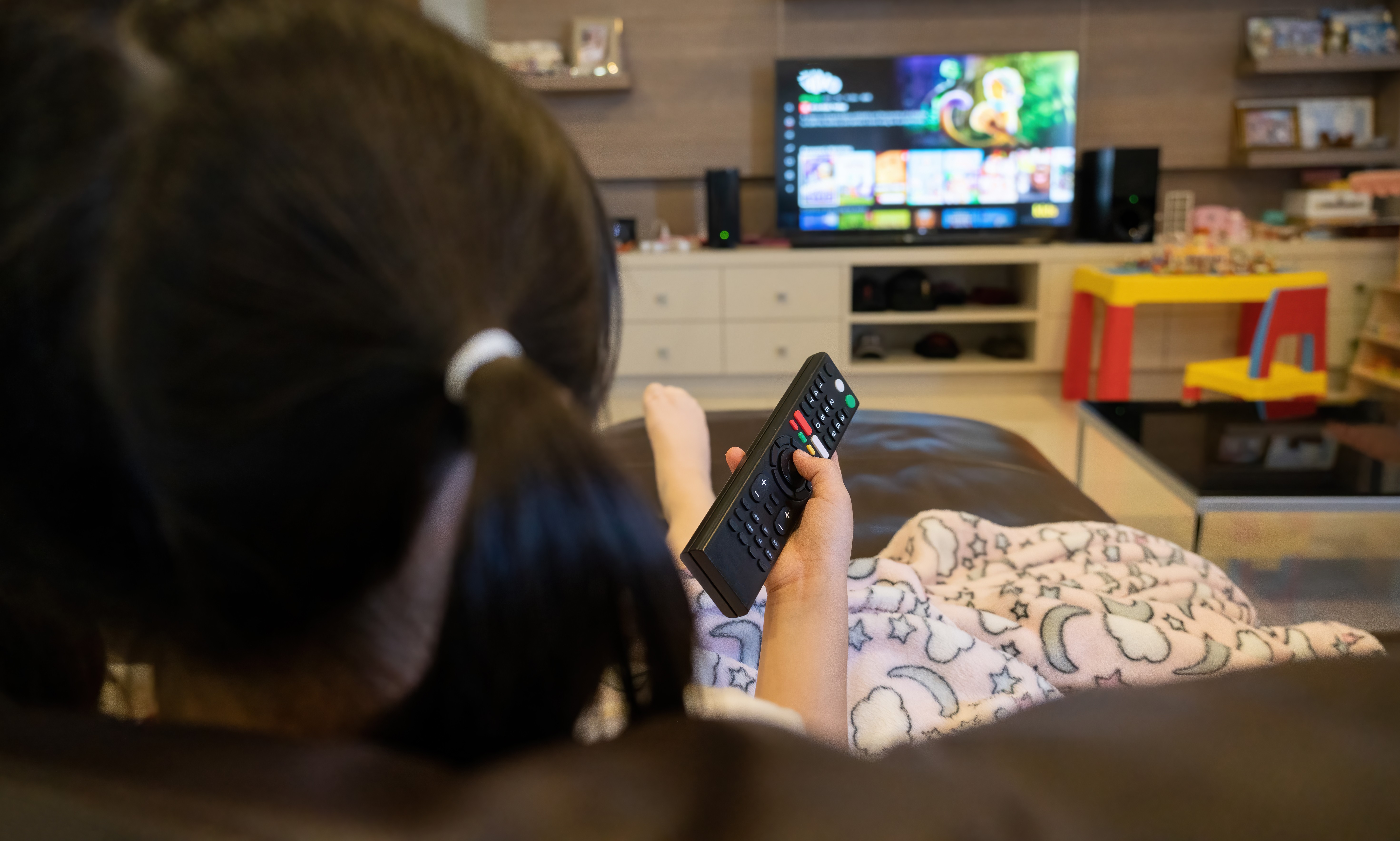
Reduce the use of electronic devices in the bedroom, such as TVs, computers, or even phones. These items emit electromagnetic fields that disrupt Chi and affect sleep. If you have a TV in your bedroom, it is advisable to cover it when not in use. This will reduce distractions and the reflection of energy.
Psychic mirrors positioning
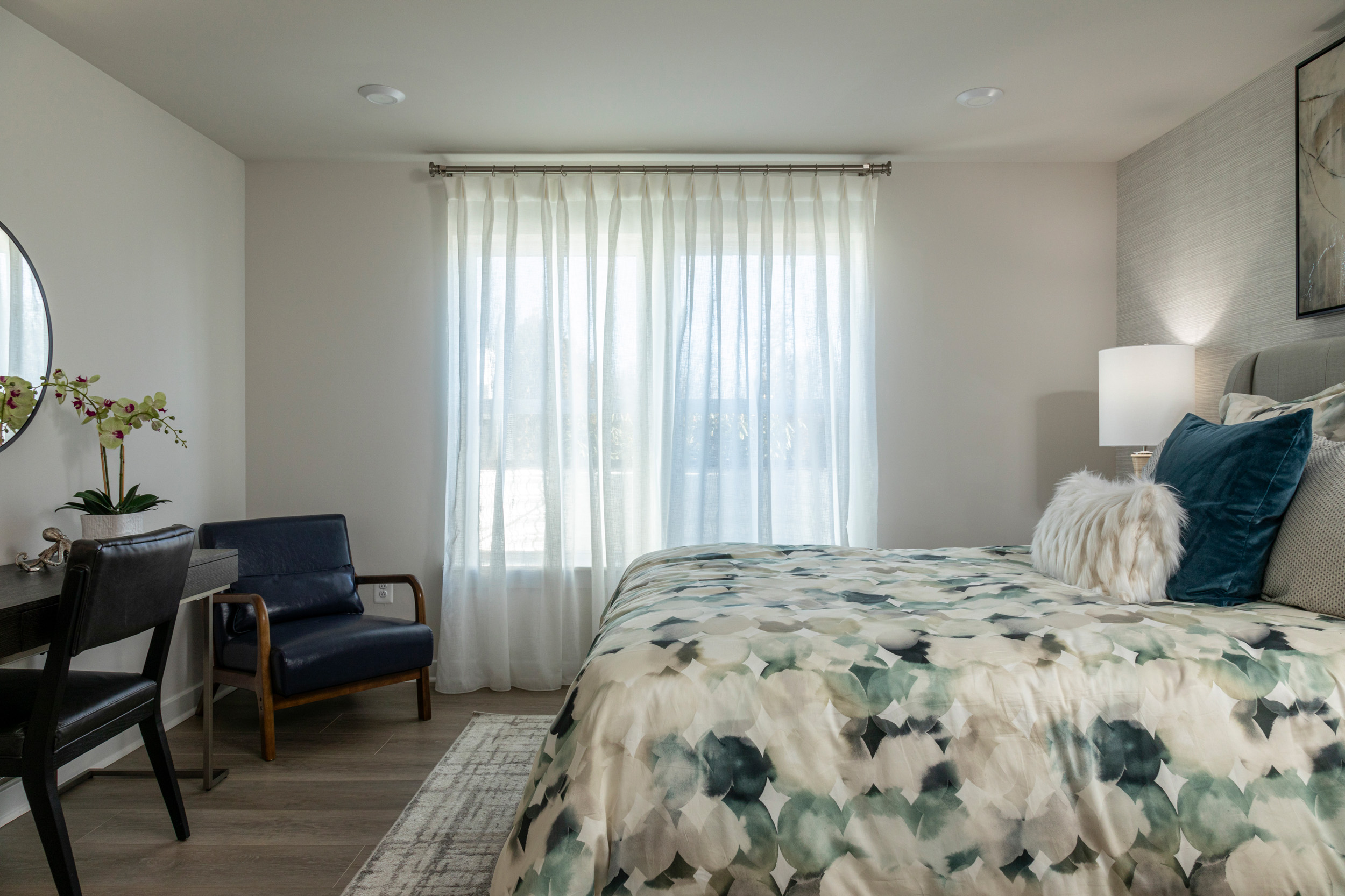
In Feng Shui, mirrors are believed to bounce energy around the room, which can disrupt sleep. Place the mirror where it doesn't reflect the bed. Too many mirrors in the bedroom can create overstimulation, making it harder to relax.
Symmetry and balance
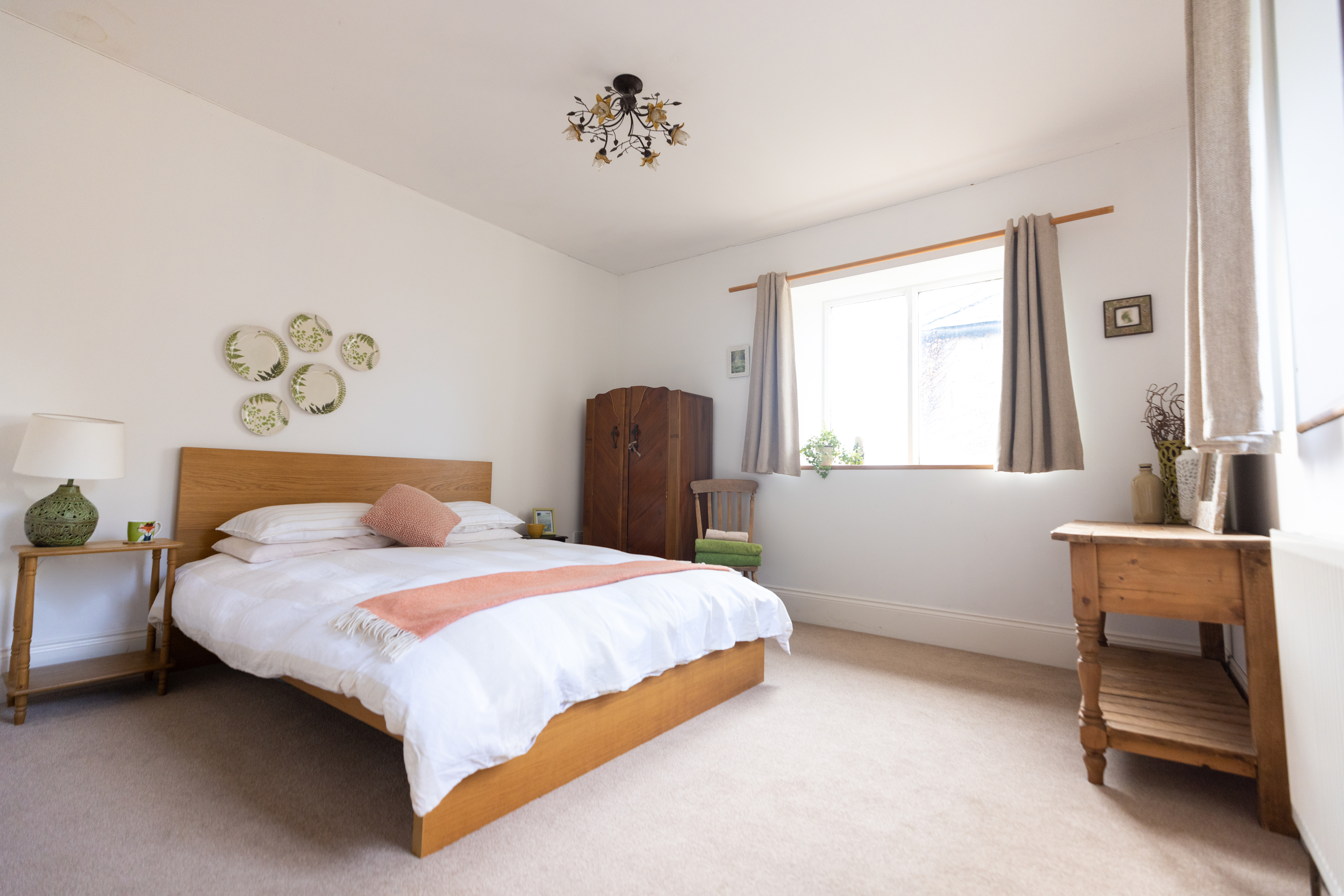
Having two similar bedside tables, even if one person sleeps in the bed, creates a sense of balance and harmony within the space. Items on either side of the bed must be balanced. This symbolizes an equal and harmonious relationship in the bedroom.
Relaxing artwork and lighting
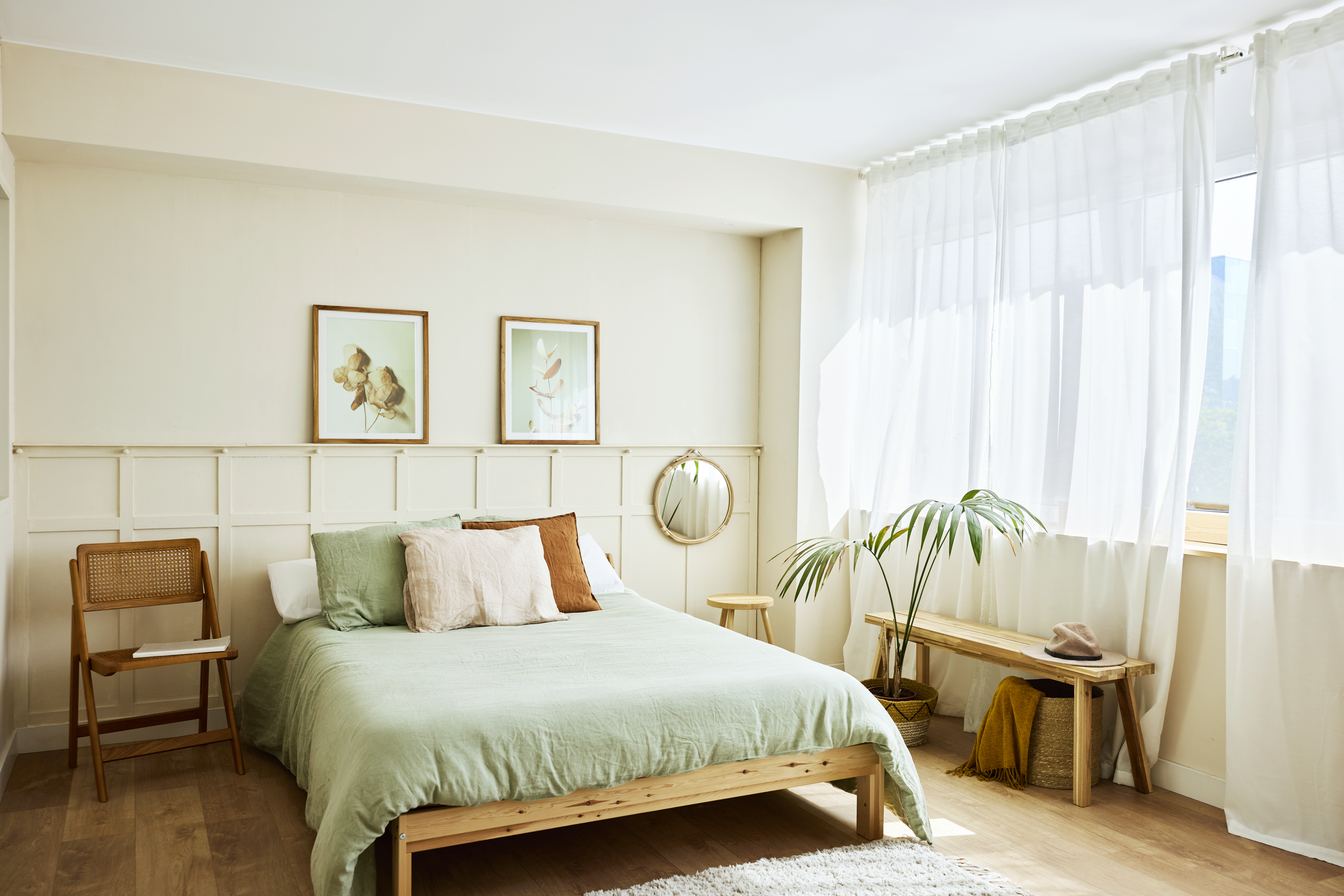
Choose artwork that evokes calm, serenity, or peaceful emotions (Getty Images)
Although the bedroom should have limited items, choosing artwork, it is better to opt for artwork that evokes calm, serenity, or peaceful emotions. Avoid aggressive, chaotic, or lonely imagery. To position the artwork, hand it where it can be easily viewed from the bed to create a calming atmosphere. “Complement your entire bedroom décor with soft and ambient lighting that creates a peaceful mood. Dimmer switches or lamps with warm lights are ideal,” says Raghunandan Saraf, Founder of Saraf Furniture. Additionally, allow natural light into the room during the day, but use curtains or blinds to block the light at night for better sleep.
Read more:



